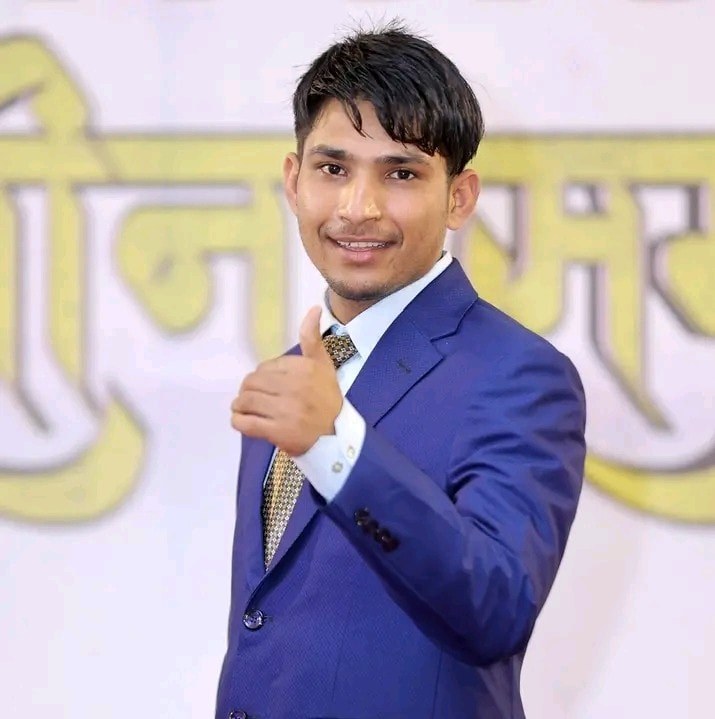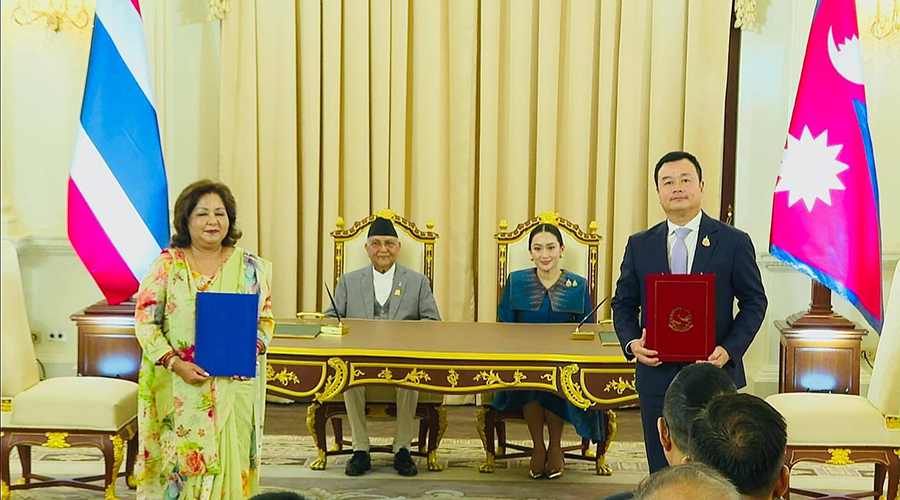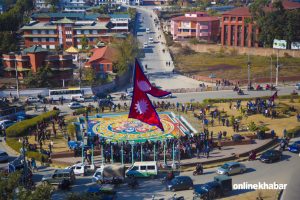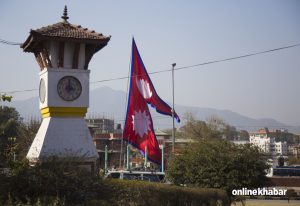
The tickets for the covered hall on August 7, during the final match between Nepal and India in the CAVA Women’s Nations League, went sold out. Many spectators had to return from outside the covered hall as they could not get the tickets.
Teju Lal Chaudhary, Minister of Youth and Sports; Manbir Rai, Minister of Defence; Balen Shah, Mayor of Kathmandu Metropolitan City; and Sunita Dangol, Deputy Mayor of KMC; all were in the audience row during the final. Prime Minister KP Sharma was also supposed to be in the covered hall, but due to the immediate meeting of the Council of Ministers, he could not make it.
Volleyball, Nepal’s national sport, naturally drew immense attention, especially when the final was against arch-rival India. However, the government appreciates the volleyball team only when they win, other times they remain indifferent to them.
Volleyball in Nepal: High demand, low support

It has been seven years since volleyball was made the national game of Nepal but still, there is no proper covered hall in the country. In August of last year, Nepali volleyball players started to get Rs 5,000 as a monthly salary. The government does not provide the money, they are collected from donations.
According to Jitendra Bahadur Chand, president of Nepal Volleyball Association, the donation is collected from former volleyball players, living in the USA.
Since it has been hard to collect money from the USA regularly, he has pledged to provide Rs 5,000 monthly salary, from other sources.
“It is impossible to increase the salary of the players currently,” he says.
The investment of the government plays a crucial role in the development of the sports sector in the country. The best team in the world has a huge investment from the government. But in the context of Nepal, players do not have support from the government, they play on their own and have won various titles.
Although this time too, Nepal could not win the title; their overall performance was appreciated. They won against Sri Lanka, Maldives and India. Nepal made history by winning against India in a 3-2 set. Nepal defeated India for the first time in volleyball history.
Although Nepal was defeated by 3-2 with Iran, the team won against Iran by 3-0 in the semi-final. In the final match, Nepal was close to victory, however, they could not make it. According to coach Jagdish due to some weakness in service and receive, Nepal lost the match.
Relatively, the Indian team’s support level is higher than Nepal’s where Indian players have sufficient resources. They earn Rs 4,50,000 to 7,00,000 as a monthly salary from volleyball. They even get bonuses and enjoy various other facilities which Nepali players do not have.
Burden of budget

Sports like cricket, football and volleyball are popular in Nepal. The International Cricket Council provides annually Rs 240 million to the Cricket Association of Nepal. Similarly, the Asian Cricket Council provides a fund of Rs 70 to 80 million annually.
Cricket has a budget of almost Rs 500 million. The All Nepal Football Association of Nepal (ANFA) also gets the fund of a total of Rs 500 million from FIFA and the Asian Football Federation.
In football, the monthly salary of men and women is Rs 18,000. In cricket the salary of men ranges from Rs 35,000 to 1,00,000, depending on the player’s grade. Similarly, the salary of women ranges from Rs 25,000 and 50,000, based on the player’s grade.
However, volleyball does not get funds either from international organisations or from the government.
According to Chand, the Federation Internationale de Volleyball (FIVB) does not provide funds to the Nepal Volleyball Association. They only provide materials like mats, balls and nets. To get that too there needs to be a project.
It is confirmed that in 2024, Nepal will get coaching staff and 100 balls from FIVB.
The association has an annual budget of Rs 120 million to 150 million but that money is spent on administrative work and on organising tournaments. That’s why it is difficult to pay salaries to the players, says Chand.
According to him, the players sustain only because they are playing for the departmental teams. Otherwise, they would have left the sport.
The former captain of the volleyball team and current vice-president of the association Bharat Shah emphasises that in addition to government investment, the government must create an environment that encourages the private sector to invest in sports.
“To develop any sports it needs regular training and the most important thing for it is infrastructure,” says Shah, “We are detached from recent technologies. We have been training with a traditional approach.”
Urgent need for covered hall
Volleyball is a sport which is played in all 77 districts of Nepal. But the country does not have a single proper covered hall.
The National Sports Council has built a covered hall at Dasarath Rangashala, Kathmandu. This covered hall is also used by players of badminton, basketball and others, which shows the lack of a covered hall and most of the time, volleyball players are compelled to do just fitness training.
The covered hall, with a seating capacity of 1,000, hosted the CAVA Women’s Nation Cup final, where tickets were priced at Rs 1,500. Despite the high ticket price, the event was sold out.
“We did not have to ask the government for money if we had a covered hall which had an audience capacity of 5,000. We could have arranged financial resources from the tickets,” says Chand. “Due to the lack of a covered hall, we have been bearing a huge financial loss.”
Last year, the National Sports Council agreed to acquire land from Kageshwori Manohara Municipality, Mulpani. There had been efforts to build the covered hall in Tribhuvan University Council and Budhanilkantha. However, the effort remained unsuccessful.
Although volleyball is an indoor game, it is also played outdoors. The career of players might end if they had an injury. Many of the players can not afford treatments. The physiotherapists are also available only during tournaments.
Despite all these challenges and limitations, the women’s volleyball team of Nepal won gold medals in Central Zone Women’s Volleyball in 2019 and 2021. Similarly, in 2019 during the 13th South Asian Games, the team won the silver medal.























